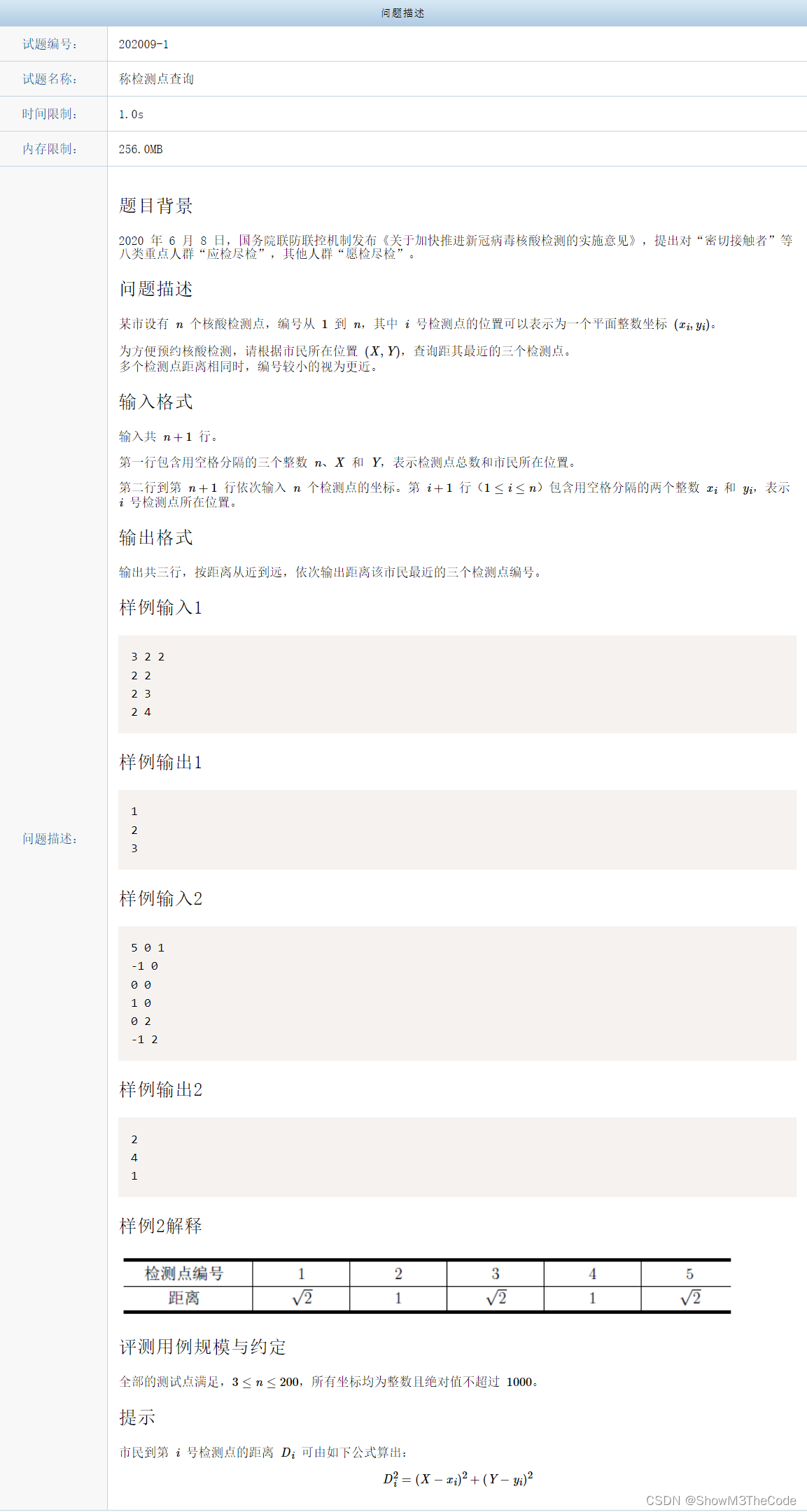
思路
大概想到两种,一种是优先队列,重构优先级,第二种是贪心,选到比原来小的就更新,方便起见我用的是第二种,代码如下:
满分代码实现(自解)
#include <map>
#include <set>
#include <queue>
#include <iostream>
#include <algorithm>
using namespace std;
class Solution {
public:
void solve();
};
void Solution::solve() {
int n = -1;
double X = -1, Y = -1;
cin >> n >> X >> Y




 本文介绍了一种使用贪心策略来解决最优距离选择问题的方法。通过输入一系列坐标点,该算法能够找出距离目标点最近的三个点,并返回这些点的位置编号。实现过程中采用了C++语言,利用了标准库中的I/O操作和数据结构处理。
本文介绍了一种使用贪心策略来解决最优距离选择问题的方法。通过输入一系列坐标点,该算法能够找出距离目标点最近的三个点,并返回这些点的位置编号。实现过程中采用了C++语言,利用了标准库中的I/O操作和数据结构处理。
 最低0.47元/天 解锁文章
最低0.47元/天 解锁文章

















 699
699

 被折叠的 条评论
为什么被折叠?
被折叠的 条评论
为什么被折叠?








